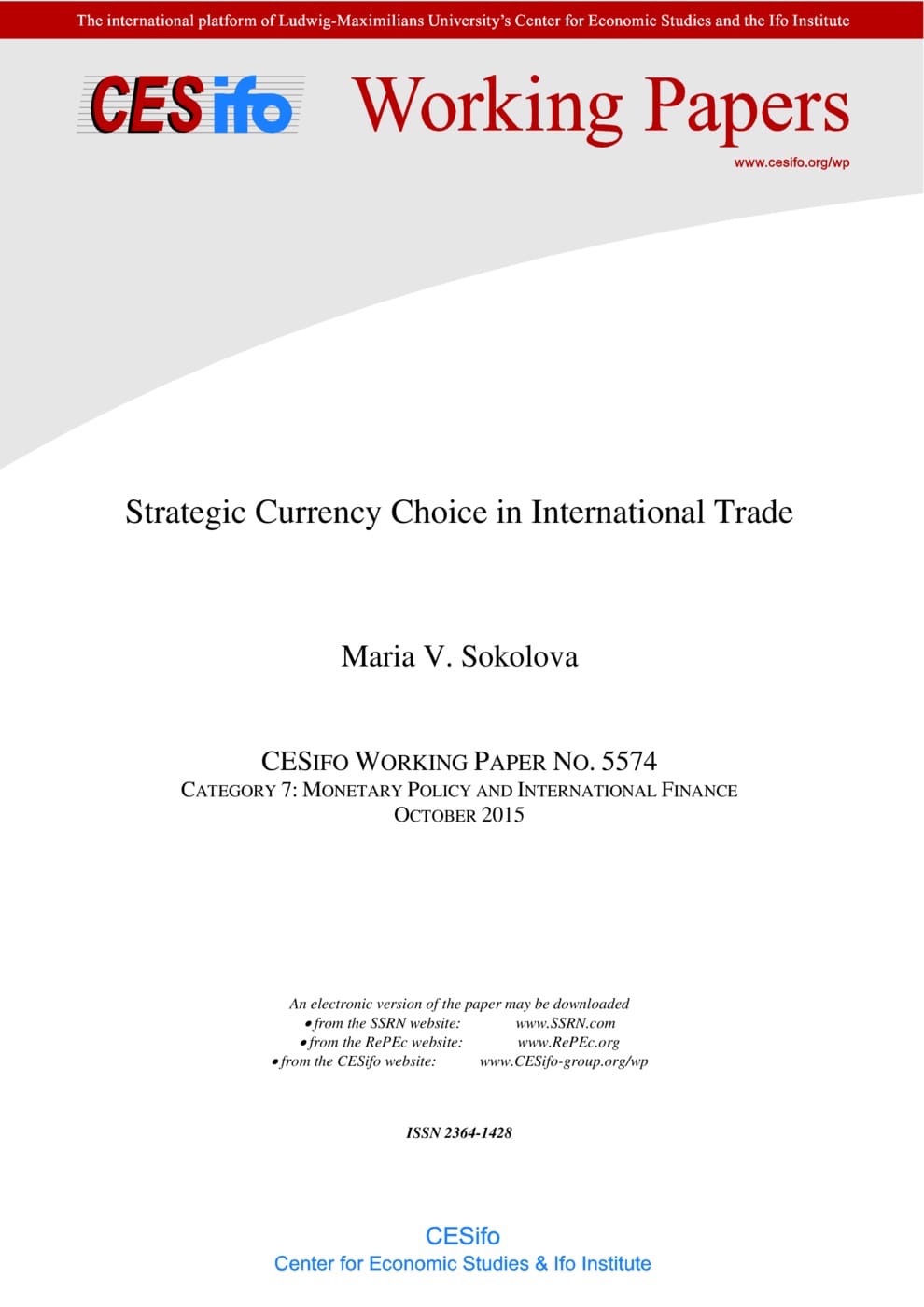Strategic Currency Choice in International Trade
CESifo, Munich, 2015
CESifo Working Paper No. 5574

How exporters choose currency for their exports? Using highly disaggregated data on the population of Russian Federation exporting firms between 2005 and 2009 this paper studies the strategic determinants of currency invoicing decisions. Strategic morives embrace two occurrences in currency choice: firstly, the realisation of bargaining powers of the seller and the buyer, where I perform a novel firm-level test. Notably, in contrast to the micro and macro determinants, bargaining powers are found to have different effect on currency choice at the aggregate and firm level. On the industry level, higher bargaining power of the participating countries lessens the reliance on “vehicle” currency and increases the probability of use of the trading partners’ currencies, whereas the increase of the firm level bargaining power increases the probability of application of the vehicle currency. This indicates that the firm-level dimension should be taken into account when making inferences on currency denomination. Secondly, strategic currency choice determinants include competition-enhanced characteristics of international trade: the novel evidence suggests the firm-level currency choice “mimicking” between the firms and the preference of vehicle currency for the relatively cheaper goods. The robustness of these results is tested among the subsamples of heterogeneous exporters sizes and I find that the expansion of the bilateral trading partners’ currencies usage is mostly sourced from the smaller exporters. On the whole, the results of this paper support the “bargaining over invoicing” theory, which indicates that increases in firms’ export size change the buyer’s and seller’s preferences over currency invoicing.
Monetary Policy and International Finance
Trade Policy